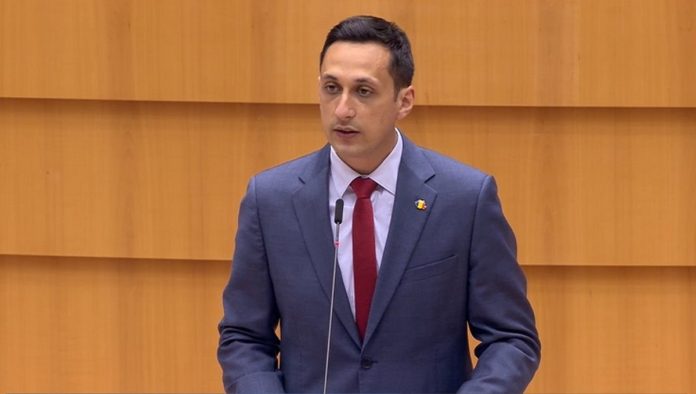Special AGERPRES correspondent Tudor Martalogu reports: The resolution based on the petition submitted to the European Parliament by the civil society in Romania challenging the legality of Austria’s veto against our country’s accession to the Schengen area will establish for the first time that what happened to Romania and Bulgaria was discrimination, MEP Vlad Gheorghe, member of the Renew Europe political group, told AGERPRES on Tuesday.
The resolution will be put to the vote in the plenary session of the European Parliament on Wednesday.
„First of all [the resolution – editor’s note] talks for the first time about discrimination and not only talks, but if it passes – and I think it will pass in plenary tomorrow, because we had unanimity in the committee and it’s basically impossible to have unanimity in the commission and not have a majority, at least, in the plenary – it will establish clearly for the first time that what happened to Romania and Bulgaria was discrimination. This is not only a political message, which is a very strong one, but there are also legal implications, because those who are discriminated against have certain rights,’, the MEP emphasized.
Another important element is the fact that the notion of losses will be mentioned for the first time, followed by compensations, as the European Commission will be obliged to asses the losses involved [by Austria’s veto – editor’s note] and, secondly, to propose legal mechanisms for Romania to be compensated.
The resolution is based on the petition submitted by former minister Razvan Nicolaescu through the Association for Clean Energy and Combating Climate Change and was supported by Romanian MEPs, being discussed on March 22 in the EP Petitions Committee (PETI).
According to the schedule of the Spanish presidency of the EU Council, the next official meeting of the EU interior ministers is scheduled for September 28, in Brussels, when the subject of Schengen expansion could be included on the agenda.




